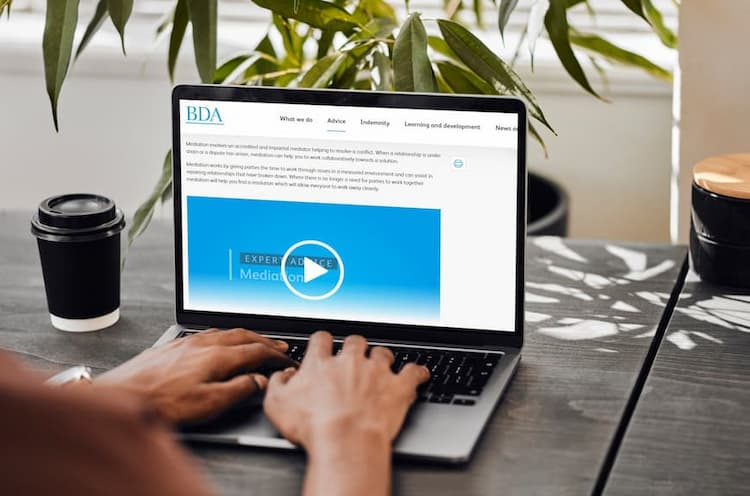We want you to thrive and choose the best path for you. As a complement to our wide range of detailed written advice, our advice videos give members a quick rundown of the main things you need to consider across a number of areas, from partnerships to complaints handling.

Business names and brands
A good name may take while to choose, but it’s very important for your business to succeed in the future. It should be short enough to fit on relevant documents and look good on the sign outside your premises. Many dentists use the name of the location in the company name to help with search engine optimisation.
Some common dental words need approval from public regulatory bodies so leave yourself plenty of time for research, and make sure you do not get caught out by anything unexpected. If you work for the NHS, be sure that the name you want conforms with their brand guidelines.
Watch the business names and brands video
Fee collection and financial management
If you are doing private work, fees must be high enough to achieve your target income and provide adequate cashflow, while being acceptable to patients as well. It is important to have a clear price policy and to review it at regular intervals.
Dentists should never be tempted to ignore early warning signs that could lead to emergencies like insolvency. Our advice team can tell you more about what to watch out for, plus how to keep good financial records in different areas of your business.
Watch the fee collection and financial management video
Leases and licenses
Buying a practice is not feasible for everyone, so many dentists look to lease or license. Leasing gives you formal rights over the property, whereas licensing gives you permission to use the property. With a lease, the tenant has the exclusive use of a property for a set period, and it will include specific terms you have to abide by.
Associates are perhaps the most common example of licensees. A licence could also allow different businesses on the same premises. The details of the licence will state your responsibilities, information about payments and the use of materials.
Watch the leases and licences video
Partnerships
For this setup, it is key to find the right partner: someone you know well, trust, and who you can communicate well with. Then you can draw up a comprehensive and legally binding partnership deed, detailing your mutual responsibilities.
Each partner will be treated as a separate business entity, although you will have some shared responsibilities regarding accounting and profit sharing. We have templates that you can use and adapt for your situation.
Handling complaints
No-one expects to get complaints, but it is important to have a structure in place so that any complaints can be resolved swiftly without escalating. Our team outline best practice for speaking to patients about their concerns, and swift problem solving.
Good communication is key, particularly around pricing because patients often complain when their expectations have not been met. If you encourage feedback at your practice, you can intercept issues before they become complaints. Keeping track of comments and complaints can mean you begin to see patterns and then plan how you can improve.
Watch the handling complaints video
Data protection and GDPR
Since 2018, organisations have had to take much more responsibility for the correct handling of patients’ and employees’ personal information. Now you must provide privacy notices to patients, and people you work with.
Data held on individuals has to be accessible to them and kept for no longer than necessary. Depending on the circumstances, in the event of a data breach you may need to notify the relevant body, and those affected. Governmental bodies can also give you advice on best practice for data protection.
Watch the data protection and GDPR video
NHS dispute resolution
It is recommended that you try to resolve disputes informally in meetings to try to prevent problems escalating. You should also keep records on correspondence and notes on what happened.
The relevant public bodies may have an established dispute resolution procedure that you can work from. Depending on your contract, you may be bound by the NHS dispute resolution process. Our advisors are happy to talk to you about your options.
